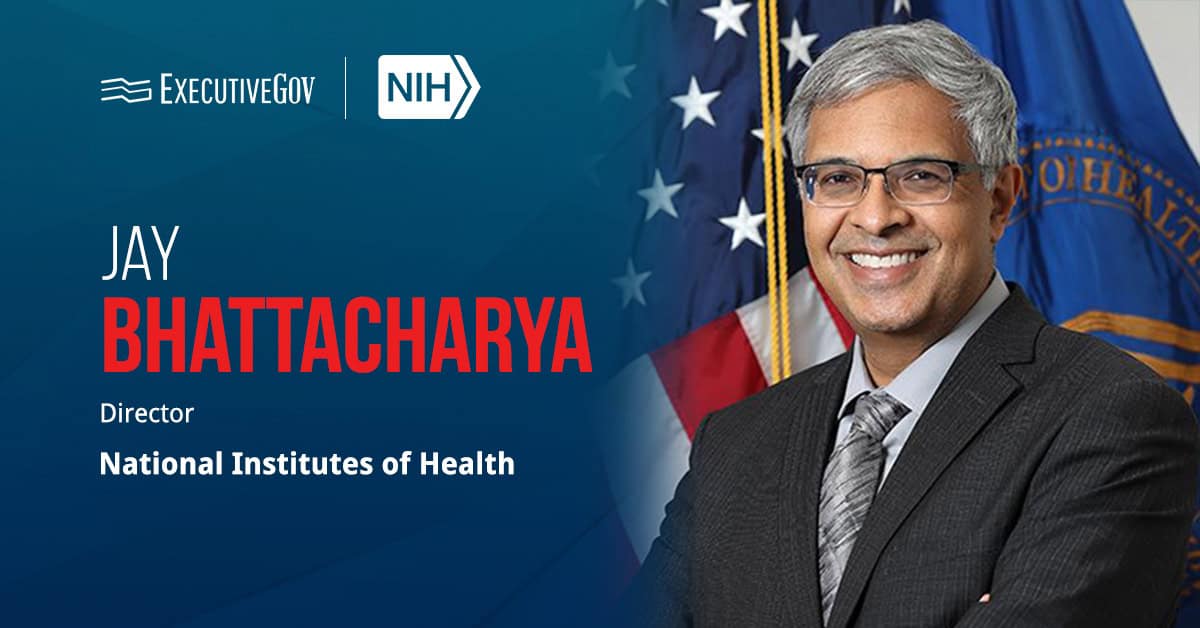Jay Bhattacharya, director of the National Institutes of Health, said NIH is advancing a unified strategy that seeks to align funding approaches and priorities to address urgent health needs, support a biomedical research workforce and fund scientific research.
“A central pillar of this approach is balancing scientific opportunity with mission-critical objectives,” Bhattacharya said in a statement published Friday.
As part of the unified strategy, the NIH director said the agency is prioritizing artificial intelligence, real-world data platforms, alternative testing models and other next-generation tools.

Hear experts discuss the latest tech advancements, policies and more at the Potomac Officers Club’s 2025 Healthcare Summit on Dec. 4. Save your spot now for this GovCon networking event!
Table of Contents
Advancing AI Through NIH Strategic Plan
NIH will create an artificial intelligence strategic plan to improve transparency in AI models, establish replication standards for AI use in research and accelerate research and development of AI discoveries to support patients.
The AI strategic plan will consider high-impact use cases of AI, strategic architecture, best practices for validating AI in healthcare delivery and new opportunities to use AI to support agency operations.
Real-World Data Platform
NIH is creating a secure national infrastructure to integrate data from real-world sources while respecting individual privacy rights.
The agency’s real-world data platform will provide investigators with advanced computational analysis resources across chronic diseases, neurodevelopmental disorders and other research areas.
Alternative Testing Models
NIH is forming the Office of Research Innovation, Validation and Application within the Division of Program Coordination, Planning and Strategic Initiatives to advance the use of human biology-based new approach methodologies to improve investigations and complement animal models.
The new office will serve as a hub for interagency collaboration; coordinate with NIH centers and institutes to explore ways to reduce dependence on animal testing; and broaden funding opportunities and infrastructure for non-animal approaches.
Enhance Oversight of Funded Foreign Research & Other NIH Priorities
Bhattacharya said NIH will improve oversight of funded research initiatives abroad to help rebuild public trust.
“We will expand support for replication studies and strengthen our capacity to advance groundbreaking science,” he noted. “At the same time, NIH remains dedicated to fostering open, competitive, and accountable science and supporting investigators as they pursue innovative, and sometimes controversial, questions grounded in rigorous methodology.”





